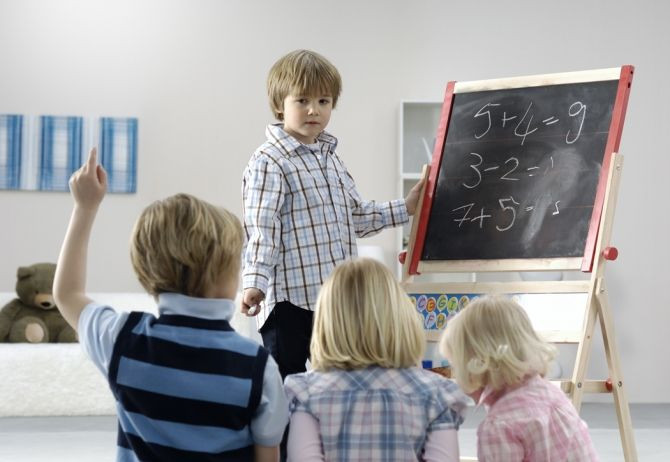Children Today are Wildly Imaginative

While a child may be playing differently now than 20 years ago, one thing still at the heart of this activity is imagination. Surprisingly, children today are more imaginative than children two decades ago.
The story goes that children today are either lazy, spoiled or lack imagination thanks to television, videogames and easy access to quick entertainment. While some people may believe that children no longer rely on their brains to create their own entertainment, it turns out that over the years, a child's imagination has actually increased.
This surprising conclusion stems from analyzing two decades, between 1985 and 2008, worth of children's play studies. The research was led by Sandra Russ and Jessica Dillon from the Case Western Reserve University.
The researchers used the Affect in Play Scale (APS) to measure levels of pretend play in each of the studies. The studies involved children between the ages of six and 10 and APS measures comfort, imagination, range of positive and negative emotions and the amount of positive or negative emotions. The APS involves five-minute unstructured playtime with puppets and wooden blocks.
Over the years, imagination has increased as has a child's comfort in engaging in pretend play. This is a much different outcome than many may have predicted. The researchers noted other studies that have shown that children are busier than ever and often play less now than they did 20 years ago.
Additionally, there was a significant decrease in negative emotions during play and an increased range of positive emotions. Some things did stay the same during the course of 20 years of play as there was so real change in organization or overall emotions during play.
Imagination and playtime is important for a child's development. Dr. Russ notes, that in previous studies, children who are good at play situations, including using emotions and imagination, were not more intelligent but did display better coping skills, creativity and problem solving capabilities.
While the increase in positive emotions seems like a good thing, researchers note that previous studies had shown an association between negative emotions and creativity. Future studies could also explore the role of imagination in developing creativity in children today.
The researchers believe that while children may be playing less, the skills that would have been developed during play are being developed when a child plays with videogames or uses the internet. That's not to say that children should stop playing altogether. Parents should encourage their children to play because it can help develop emotional and reasoning skills.
The study was published in the Creativity Research Journal.



























